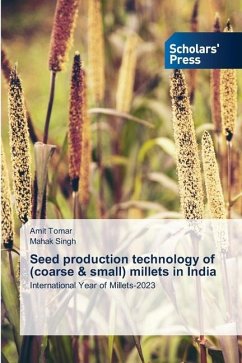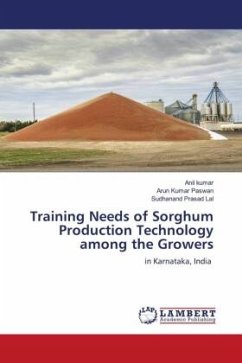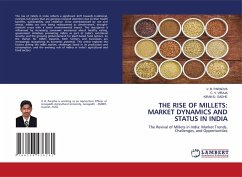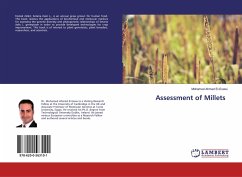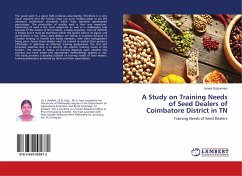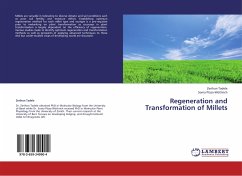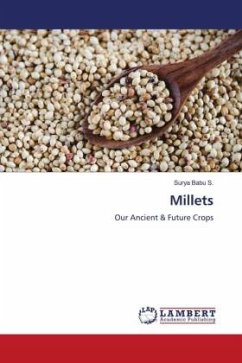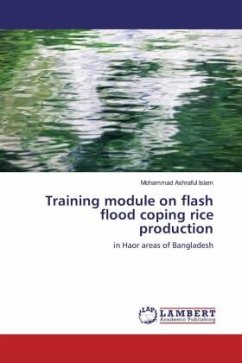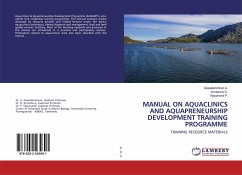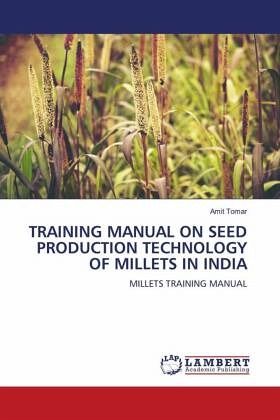
TRAINING MANUAL ON SEED PRODUCTION TECHNOLOGY OF MILLETS IN INDIA
MILLETS TRAINING MANUAL
Versandkostenfrei!
Versandfertig in 6-10 Tagen
45,99 €
inkl. MwSt.

PAYBACK Punkte
23 °P sammeln!
Millets are a group of highly variable small-seeded grasses, widely grown around the world as cereal crops or grains for fodder and human food. Millets are important crops in the semiarid tropics of Asia and Africa (especially in India, Mali, Nigeria, and Niger), with 97% of millet production in developing countries. The crop is favored due to its productivity and short growing season under dry, high-temperature conditions. Millets are indigenous to many parts of the world. The most widely grown millet is pearl millet, which is an important crop in India and parts of Africa. Finger millet, pro...
Millets are a group of highly variable small-seeded grasses, widely grown around the world as cereal crops or grains for fodder and human food. Millets are important crops in the semiarid tropics of Asia and Africa (especially in India, Mali, Nigeria, and Niger), with 97% of millet production in developing countries. The crop is favored due to its productivity and short growing season under dry, high-temperature conditions. Millets are indigenous to many parts of the world. The most widely grown millet is pearl millet, which is an important crop in India and parts of Africa. Finger millet, proso millet, and foxtail millet are also important crop species. Millets may have been consumed by humans for about 7,000 years and potentially had "a pivotal role in the rise of multi-crop agriculture and settled farming societies." Generally, millets are small-grained, annual, warm-weather cereals belonging to the grass family. They are highly tolerant of drought and other extreme weather conditions and have a similar nutrient content to other major cereals.



